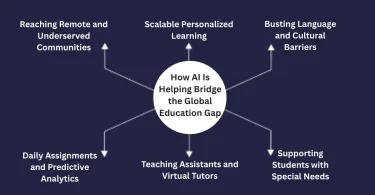Globally, there has been an increase in mental health problems as a result of the COVID-19 epidemic. During the epidemic, machine learning (ML) and artificial intelligence (AI) have been crucial in supporting mental health.
The Role of Machine Learning and Artificial Intelligence in Managing the COVID-19 Pandemic:
The COVID-19 pandemic has caused significant disruptions to various aspects of human life worldwide, with many sectors of the global economy affected. The healthcare sector in particular, has been greatly impacted and resulting in a reversal of progress in health and reduced life expectancy, especially in developing and underdeveloped nations.
However, the use of machine learning and artificial intelligence has played a crucial role in the management of the pandemic globally. In this article, we aim to examine the role of these technologies in addressing the challenges posed by COVID-19. Qualitative content analysis was used to analyze the data, and the findings revealed that machine learning, artificial intelligence, and digital communication tools such as telehealth have played vital roles in improving customer communication, understanding the spread of COVID-19 and accelerating research and treatment development.
Despite some unintended consequences of technology in the fourth industrial revolution, the contribution of these technologies underscores the need for governments to build trust in them and leverage their potential to address health problems to achieve sustainable development goals related to good health and wellbeing.
Role of Artificial Intelligence Machine Learning and Mental Health in Pandemic:
During the pandemic, these technologies have helped to promote mental health in a number of ways, which are listed below…
Using AI and ML for Early Intervention and Support in Mental Health in COVID-19 Pandemic:
People have been assessed for signs of mental illness and given early intervention using AI and ML methods. For instance, AI-powered chatbots and virtual assistants have been utilized to offer mental health counseling and assistance to people who are struggling with anxiety, depression and other mental health disorders.
Mental Health Support through AI and ML-Driven Therapy Services:
The shift towards remote therapy during the epidemic has been made possible by AI and ML. With the help of online therapy services driven by AI and ML, therapists may electronically engage with patients, offering much-needed support to people who may be experiencing mental health concerns during the pandemic.
Data Analysis and Prediction by Using AI and ML:
AI and ML have also been used to analyze big datasets to find patterns and trends connected to mental health throughout the pandemic. To support mental health, this information can be used to create tailored interventions and policies.
Targeted Mental Health Support During Pandemics:
It is possible to identify those people who are more likely to experience mental health problems during any pandemic using AI and ML algorithms. The most vulnerable people can receive targeted support and interventions thanks to this information.
AI and ML-Driven Insights for New Treatments and Therapies:
During the epidemic, research on mental health has benefited from the application of AI and ML. Large datasets are capable of being analyzed by AI and ML algorithms to find novel patterns and insights which can guide the creation of innovative treatments and cures for mental health conditions. Overall, remote therapy, early screening and intervention, data analysis and prediction, and improved mental health research have all been made possible by AI and ML, which has been crucial in supporting mental health during any epidemic.




Leave a Comment